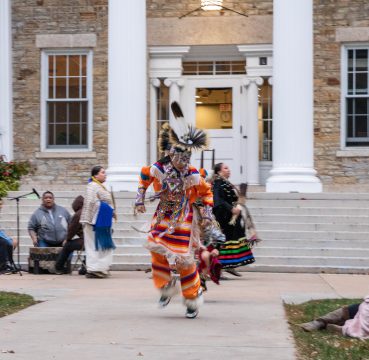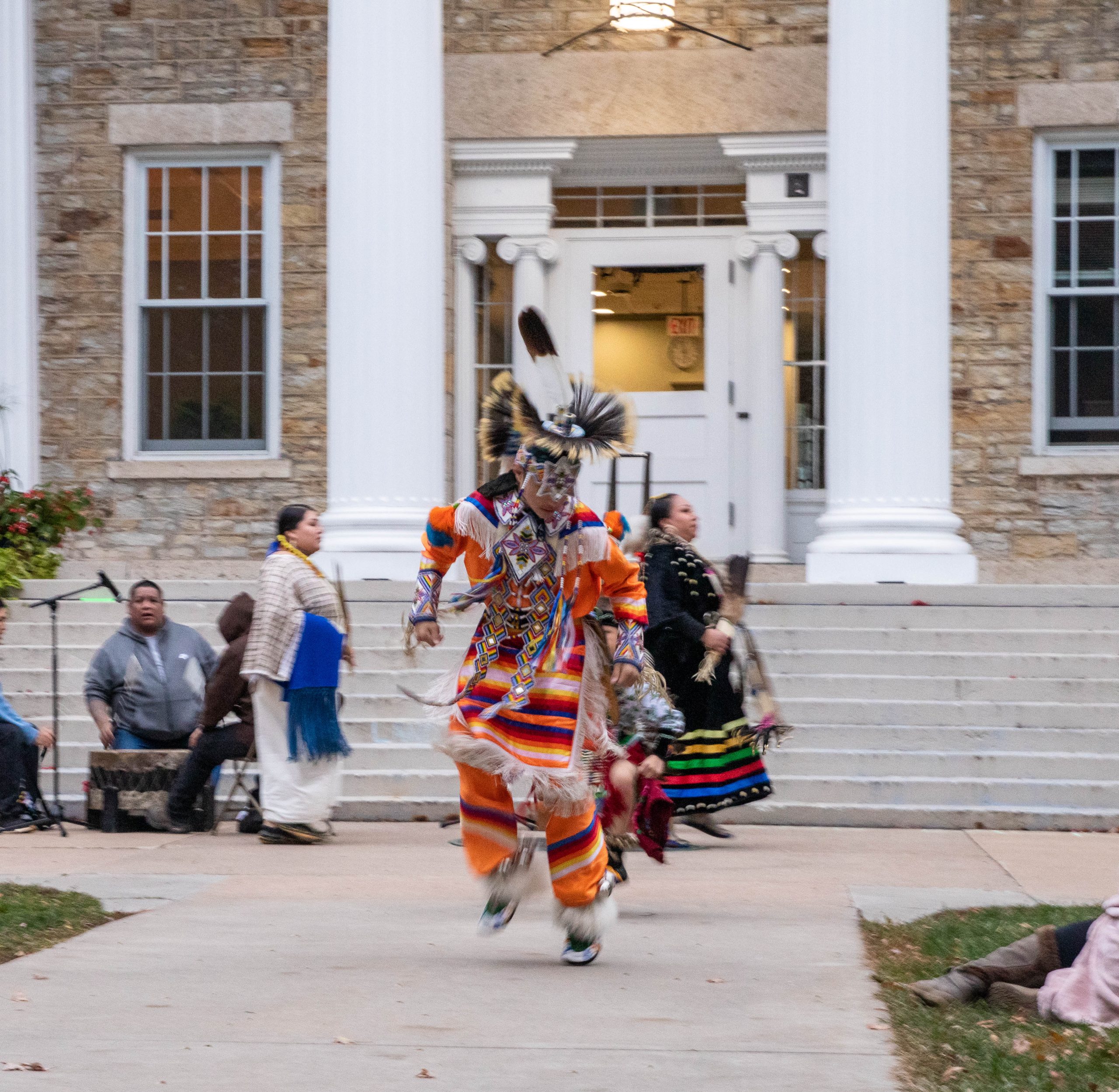Lawrence University held its 8th annual Indigenous Peoples’ Day celebration on Monday, Oct. 9 on Main Hall Green from 5 to 7 p.m.
The event was held by the Lawrence University Native Alliance (LUNA). LUNA is an organization that strives to bring “Indigeneity and Native awareness” to the school campus, as stated on their Instagram account, @Lawrence_natives.
The event featured several speakers, including President Laurie Carter, Ho-Chunk Nation President Jon Greendeer, Menominee Nation chairwoman Gena Kakkak and Menominee elder Dennis Kenote.
The Indigenous Peoples’ Day celebration shed light on the Indigenous community and the challenges they have faced and continue to face. For example, Kakkak spoke on the federal government’s policy of forced assimilation of Native Americans and the Menominee Termination Act which ended federal recognition of the Menominee tribe of Wisconsin alongside protection for its reservation lands in 1954. In addition, Kakkak addressed the large number of missing and murdered Indigenous women, girls and two-spirit people whose cases have gone ignored by the justice system and the mainstream media. A moment of silence was held for those lost.
The event featured a variety of food options, such as a food truck serving Native American tacos (made with fry bread instead of tortillas) and an arrangement of fry bread. Moreover, there was a free sample stand including Cornbread and Blueberry mash.

Junior Owen Popelka, who is not a member of LUNA but attended the event, was grateful for the opportunity to attend.
“It makes us look outside of our schoolwork and bubbles and reminds us to not be so head down,” said Popelka. “Living, breathing representation of different cultures, as opposed to just chatting about it in a classroom. This is different, this is nice.”
Junior Libby Lang-Smith, a board member for LUNA, spoke on what Indigenous Peoples’ Day means to her as an Indigenous woman.
“It is a day that is about us as people, in a culture.” said Lang-Smith “[And] to share it with everyone else so that they know it’s not just about discovery, it’s about culture and bringing people together. I personally believe that we have been misrepresented and underrepresented throughout history in life. Christopher Columbus [Day] reminded me of colonialism and just generational trauma. The renaming of Indigenous Peoples’ Day is like a healing aspect.”
According to the Wisconsin Department of Health Services, the U.S. government has recognized 11 tribes in the state of Wisconsin. These tribes are the Bad River Band of Lake Superior Chippewa, the Ho-Chunk Nation, the Lac Courte Oreilles Band of Lake Superior Chippewa, the Lac du Flambeau Band of Lake Superior Chippewa, the Menominee Tribe of Wisconsin, the Oneida Nation, the Forest County Potawatomi, the Red Cliff Band of Lake Superior Chippewa, the St. Croix Chippewa, the Sokaogon Chippewa (Mole Lake) and the Stockbridge-Munsee. There is also the Brothertown Indian Nation, which is not federally recognized.
The event ended with tribal dances from the Oneida dancers, a family group which featured a traditional women’s dance, a traditional men’s dance, a jingle dress dance, a grasshopper dance, a butterfly dance and a dance titled “Fancy Dancer.” For the last dance, the Oneida dancers invited people to join them, offering a simple two step for the crowd to dance to. Amid an array of laughter, people of all walks of life were seen staggering to find partners, trying to step to the rhythm of the dance.

